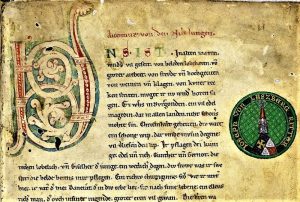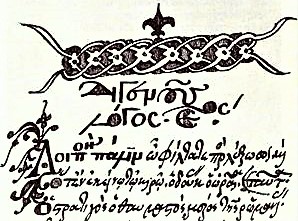Eclogue
Among lyrical genre, there is a branch of poetic writing that narrates in verses shepherds' love stories with an idealized form, where nature, music and beauty are significant elements for this narration type. This subgenre is known as the eclogue, a type of lyrical composition that was born during the Roman Empire and which still forms part of classical literature of European countries such as Greece, Italy and Spain.
What is the eclogue?
The eclogue or bucolic (as it was later called) is a lyrical composition with a romantic and pastoral theme, which is exposed through a monologue or a dialogue written in stanzas of the "stay" type composed of 30 stanzas of 14 verses. In this type of poem, nature, idealized love, music and beauty play a major role, since they are the resources used by their narrators (shepherds) to extol their romance stories.
History of the eclogue
The origin of the eclogues goes back to the 4th century BC during the Roman Empire. One of the first poets of this subgenre was Theocritus with his work “Idilio” (that means in Greek small songs or little poems), in which he presented pastoral histories.
Many poets inspired by Theocritus’ work, also wrote eclogues, such as Moses, Zion of Smyrna, Virgil, Nemesian, Calpurnius and Ausonius.
Over time, the eclogues gave way to the “bucolic” (word meaning song of shepherds), a form of eclogue representing real characters. This idea was taken from Virgil’s Bucolic who used it to add autobiographical elements creating imaginary shepherds to refer to real characters of their time.
During Renaissance, he had an important presence with authors such as Giovanni Boccaccio and Jacopo Sannazaro, who mixed the compositions written in verse with a narrative in prose.
In Spanish golden century literature, there are many recognized authors who wrote eclogues, among which we can cite Lope de Vega, Gracilaso de la Vega, Lucas Fernández, Juan Boscán, Pedro Soto de Rojas, Bernardo de Balbuena, among others.
Nowadays, the eclogue or bucolic, is studied as a lyrical subgenre that has prevailed in classical, medieval and renaissance literature, not only because of its subject matter (love, country atmosphere, dialogues between shepherds), but also because of its formation in verses of seven and eleven syllables; and its metric of consonant rhyme.
Characteristics of the eclogue
Among the most outstanding characteristics of the eclogue we can mention the following:
- It is written in eleven and seven-syllable verses.
- It has 30 verses.
- The main theme is love.
- There is a dialogue between shepherds. That is why they are comparable to short plays.
- The atmosphere of the countryside is present.
- Music has a fundamental role in the verses.
Eclogue metrics
The eclogue was composed of 30 stanzas called “Stays“ and each stanza had fourteen verses of eleven and seven syllables (hendecasyllables and heptasyllables), with a consonant rhyme.
Its metric scheme is: ABCABCcddEEFeF.
However, it is important to mention that this type of stanzas evolved with the evolution of this lyrical subgenre.
Among the most prominent eclogues writers we can cite:
- Teocrito (Ancient Greece), Greek poet who wrote the “Idilios”;
- Virgil (Ancient Rome), Latin poet who wrote his “Bucolicas”;
- Nemesian (Ancient Rome), Latin poet who wrote four eclogues;
- Giovanni Boccaccio (Italy), Renaissance poet who wrote bucolic as “Diana’s Hunt”;
- Lope de Vega (Spain) with works such as “La Arcadia” and “El verdadero amante”;
- Garcilaso de la Vega (Spain) with eclogues such as “El dulce lamentar de dos pastores” (The sweet lament of two shepherds).
Examples
Next, we will present two fragments of an eclogue written by Garcilaso de la Vega, in which elements of this subgenre can be evidenced such as: the verses of 14 verses, the loving theme, the dialogue between shepherds, the rural environment.
Title: Eclogue I
Salicio
“Oh harder than marble to my complaints,
and the fire in which I burn
frostier than snow, Galatea!,
I am dying, and yet life fears;
I fear rightly, for you leave me,
that there is no living for what it is without you.
Shame on me that she sees me
none in such a state,
of you helpless,
and of myself I run now.
Of a soul do you despise being a lady,
where you’ve always dwelt, not being able
out of her for an hour?
Go out without mourning, tears, running…”
Nemorous
“Streams of water, pure, crystalline,
trees you’re looking at in them,
green meadow, fresh shade full,
birds that here plant your quarrels,
ivy that you walk through the trees,
twisting its way through its green breast:
I saw myself so far away
of the grave evil I feel,
that of pure contentment
with your loneliness recreated me,
where he rested in sweet sleep,
or with the thought ran
where I couldn’t find
but memories filled with joy.”
How to cite this article?
Briceño V., Gabriela. (2019). Eclogue. Recovered on 4 January, 2025, de Euston96: https://www.euston96.com/en/eclogue/










